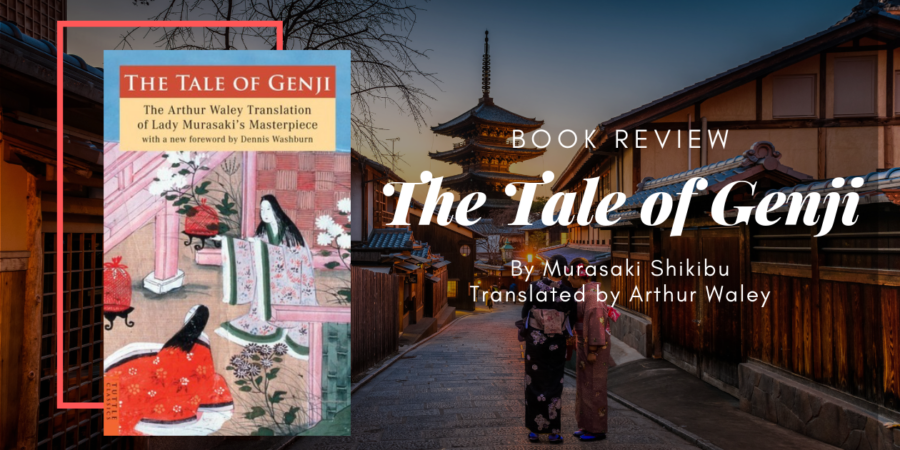I have finally read the unabridged version! It took quite a while to find, but I finally got a library copy of the Arthur Waley translation. I couldn’t decide which translation to buy, or even if I wanted an unabridged translation to keep so I went for whatever the library had first. The Waley translation is the first full translation of The Tale of Genji. Before that, the only English translation was the one by Suematsu, and that was an abridged version.
This version of The Tale of Genji is much, much longer than the abridged version by Seidensticker that I read previously. The abridged version ended soon after Genij’s exile, which I now realised is pretty early in the book. The full tale follows Genji till his death and to the lives of his son. It reminds me of the Taiwanese drama 爱, which ran for 3 years. It’s really more about the lives of Genji and the people around him and isn’t like a traditional quest with one climax to the plot. If you’re interested, [SPOILER ALERT] after Genji dies, his son and his grandson have a series of love affairs that culminates with them falling in love with the same girl. Obviously, something tragic happens.
The previous time that I read Genji, I thought that he came across as rather unlikeable. After reading this, I’d like to expand the “unlikable” label to all the men in the novel. As much as they think themselves sensitive, they are really very callous in the way they treat the female characters in the novel. They see nothing wrong with having many wives (even if their existing wives/partners aren’t happy) or stealing little girls to raise them to become concubines. As much as I understand that this was the way they lived and thought at that time, I still don’t like it. I appreciate the characterisation and how vividly they were brought to life, but I would not like to be friends with them.
Instead, my sympathies lie with the female characters, who have to find a way to live in peace with one another. Murasaki is quite a young girl when the abridged version of the book ends, so I was really interested in how the rest of her life played out. She’s really a model woman, just like how Genji trained her to be. And I found that the relationship between Genji and Fujitsubo to feel a lot more consensual in this book – probably because of all the extra chapters that made it clear that there were feelings on both sides.
I’ve read that Waley is supposed to be quite “loose” with the translations, translating more for readability than for accuracy. That said, even modern Japanese versions are translations so a completely faithful translation would probably be too much for me now. I found that this translation is not super helpful in painting a picture of the clothes they wore, but it was great in painting a picture of the characters in the book.
Something interesting I noticed – I picked up somewhere in the books/websites I’ve been reading that Heian Japan prized plumpness as a beauty standard and that men and women were generally similar in terms of the ideal beauty. So when I was reading the book this time, the exclamations at how Genji, Kaoru, Niou, and all the other characters still looked beautiful even when they lost weight made sense to me now – they were moving away from the ideal but yet they still looked beautiful.
Another interesting I picked up from the unabridged version was the importance of scents. There’s a pretty long passage in The Spray of Plum Blossoms where Genji hunts for different scents for his daughter’s Initiation, resulting in a trial of them. The idea of scent is further developed in Kaoru and Niou’s time, with Kaouru having a unique natural scent and Niou being pretty nice-smelling as well (hence their names). This reminded me of the scent/incense culture of Japan – I’ll need to go back and check when it developed in China and if it could have influenced Heian Japan.
The last thing I noticed – The World of the Shining Prince wrote about how stratified Heian Japanese society was. And I definitely felt it here. The whole storyline of the Lady from Akashi and her daughter (who became Empress), as well as poor Ukifune, who is somewhere between nobility and not, helped me to see how rigidly society was divided back then.
I’m glad that I’ve finally read this. It took me a long while because the book is really a doorstopper (1200 pages) and I couldn’t bring it out of the house with me. I don’t know if I’ll want to reread the book, but it has definitely renewed my interest in finding out more about Heian-era Japan.
